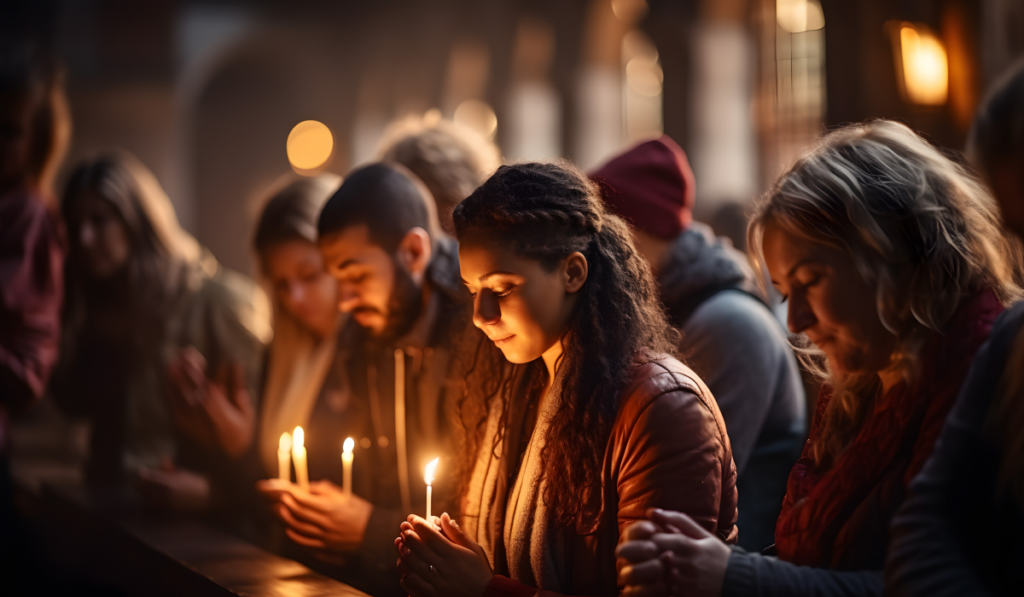 `
`
How Churches Can Prepare for the Next Coronavirus
While any serious disaster or pandemic can harm places of worship, the effects of coronavirus on churches have been particularly devastating. While congregations are remaining safe due to social distancing, this safety measure is hitting churches particularly hard financially.
The fact is that most religious leaders weren’t expecting this scenario. This means many houses of worship have not prepared for the financial woes to come. Some may even have unknowingly put their parishioners at risk. This pandemic will hopefully make it apparent that preparation is essential.
The next disaster or major contagion is always potentially just around the corner. By implementing the following operational continuity strategies, your church will be better prepared for coronavirus and similar difficulties that test our resolve.
Have an Emergency Response Plan in Place
Religious leaders who had an emergency response plan (ERP) in place were undoubtedly better prepared to deal with the coronavirus outbreak at their churches. These plans don’t just focus, though, on potential pandemics. Instead, their creators conduct a risk assessment to ascertain what their biggest threats are.
This appraisal of potential disasters will vary dependent on geography and other factors. While a church in North Dakota may need to have a plan that includes focus on blizzards, a Houston house of worship would fare better by planning for tornadoes. Unfortunately, pandemics can touch us no matter where we are.
Your plan should include methods for continuing operations (e.g. alternative communication methods), responding to sudden emergencies (e.g. first aid kits, alternate routes to hospital), shelter-in-place strategies, long-term recovery plans and more. Download this resource for full instructions on creating your ERP.
Implement Alternative Giving Strategies
Churches receive 98 percent of their overall income from congregant tithing and donations. Much of this occurs during in-person services. Churches facing coronavirus and other potential disasters, though, are at a disadvantage. If people are unable or fearful of attending worship services due to possible harm or infection, your revenue is going to take a hit.
Although offering other avenues of giving is ideal during emergencies, it’s actually a good practice in general. Around 60 percent of churchgoers convey willingness to donate online. Considering the fact that in-person attendance is down even when coronavirus isn’t spreading, digital giving and other collection platforms may be the only way you receive tithes from infrequent visitors.
By accepting donations via text, mobile app, webpage and other digital giving platforms, you’re maximizing your current revenue while also ensuring congregants can give what they want – even during a disaster.
Have Plans to Minimize Physical Contact
While many people don’t think about it, there’s a significant amount of physical human contact at church services. Meet and greets, partaking of The Eucharist, passing the offering plate and a host of other activities involve direct interactions that can easily result in the spreading of germs. When a pandemic like the coronavirus threatens your church, you should alter these practices.
Instead of passing an offering plate between congregants, for instance, utilize plates with the long handles. Better yet, simply designate certain areas throughout the church to serve as collection stations. If your congregants take communion, purchase a stockpile of individually-wrapped wafer/juice packets, such as these.
What about the ever-popular act of shaking everyone’s hand? When a pandemic is occurring, this practice needs to end immediately. You should focus on minimizing physical contact as much as possible. Additionally, if health authorities recommend ceasing public gatherings, take the warning seriously and consider canceling services.
Have a Plan to Stream Services Live
If you’re a leader at a large church, there’s a good possibility that you already stream your services live. With church attendance experiencing consistent drops, it’s become essential to focus on the congregant and donor experience. If someone feels like staying home and worshiping from the comfort of their couch, they should be able to.
Fortunately, this will also help you continue services during emergencies and pandemics. When people start staying home – either on their own or by government order – online services will be the only option available. Even if you don’t stream weekly, you should have the capabilities of doing so. Fortunately for churches on tight budgets, this could include little more than a smartphone and Facebook page.
Pray for the Best, Prepare for the Worst
Ezekiel 38:7 tells us to prepare ourselves, prepare those around us, and to guard those people. It’s our biblical duty to protect the flock God has entrusted to us, but this simply can’t happen if we lose the operational abilities of our church due to coronavirus and other difficulties. Take these strategies to heart and never think “it couldn’t happen to us” – because, as of the beginning of 2020 – it officially has.


